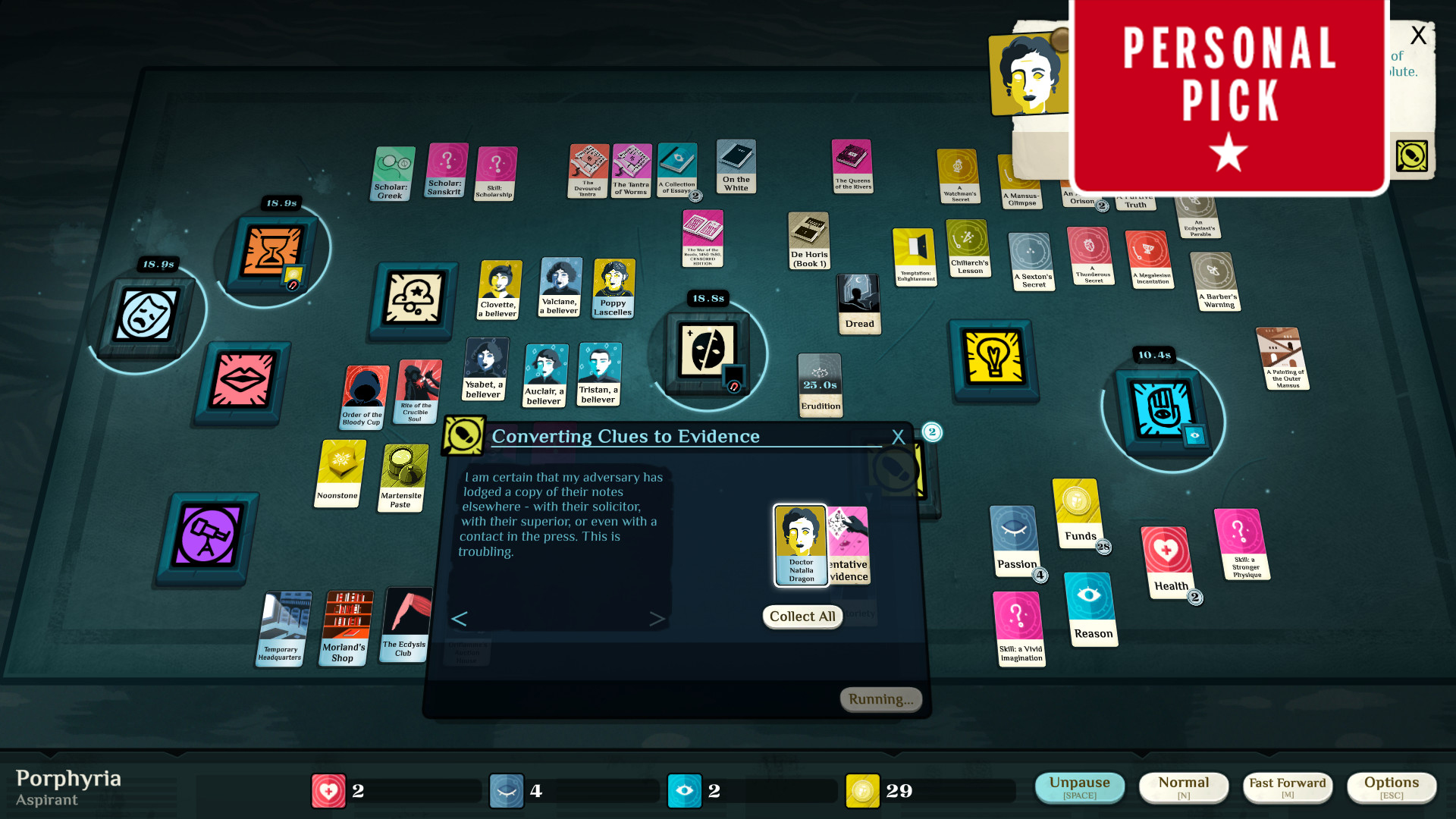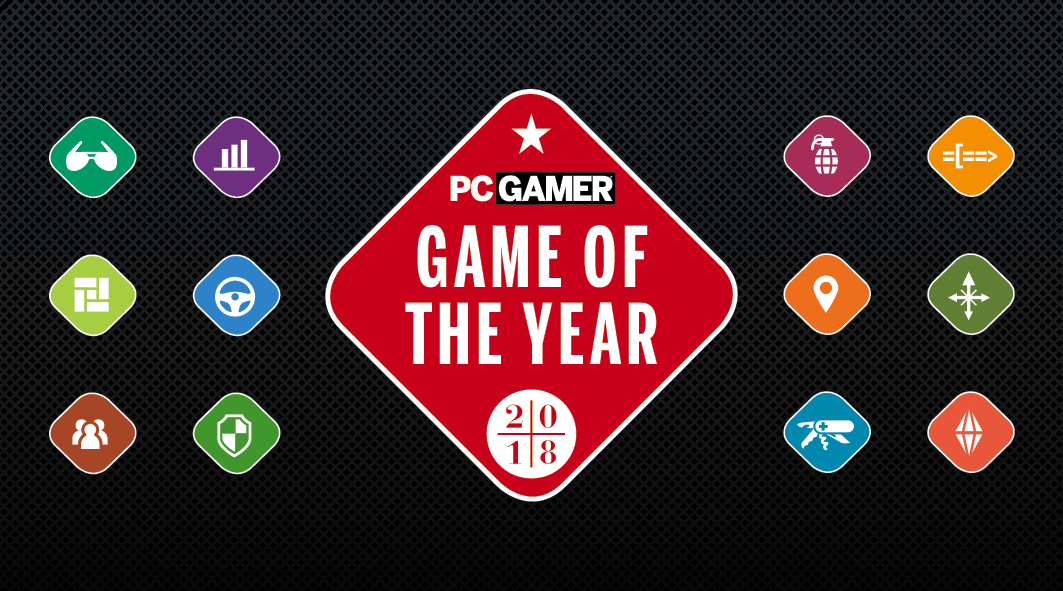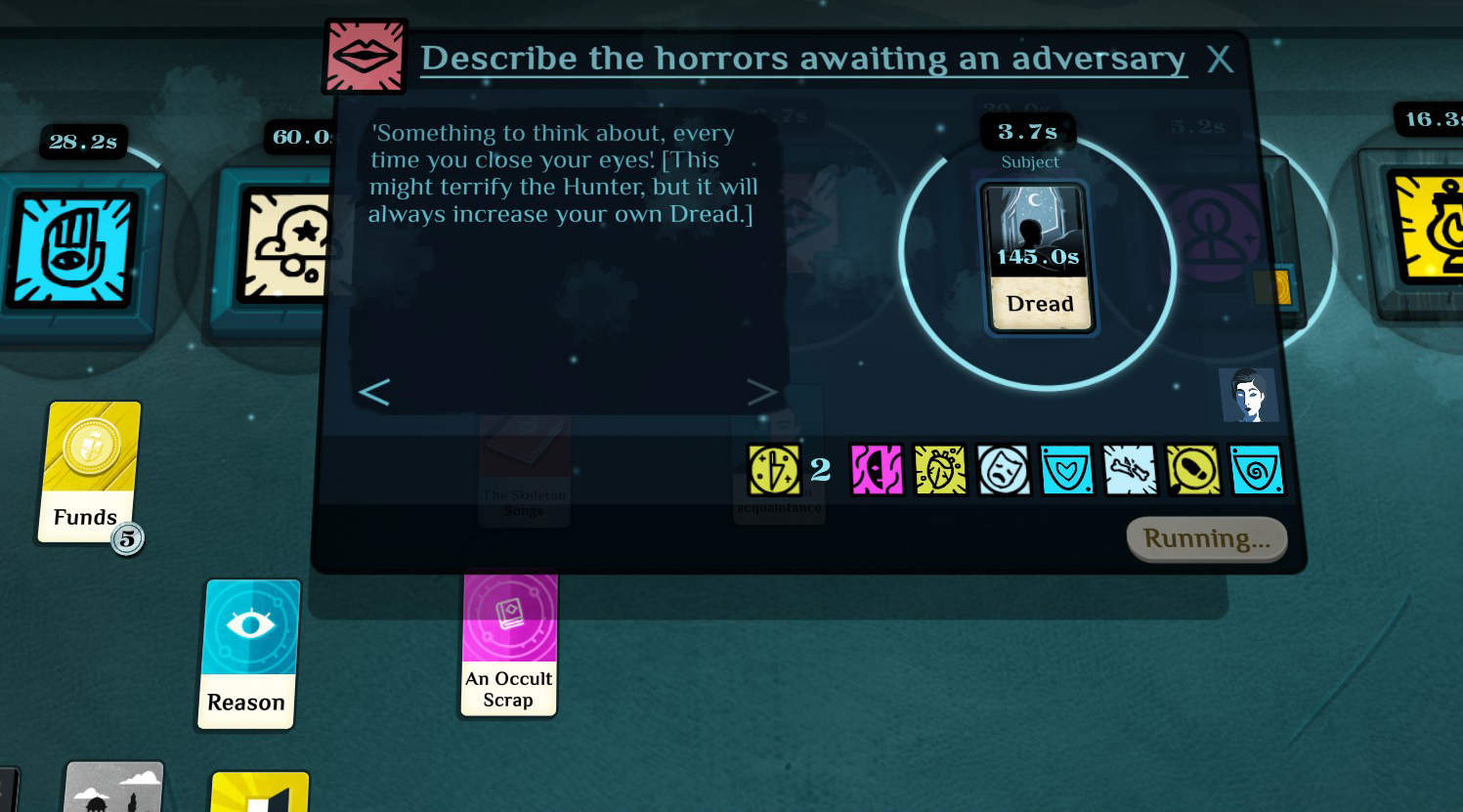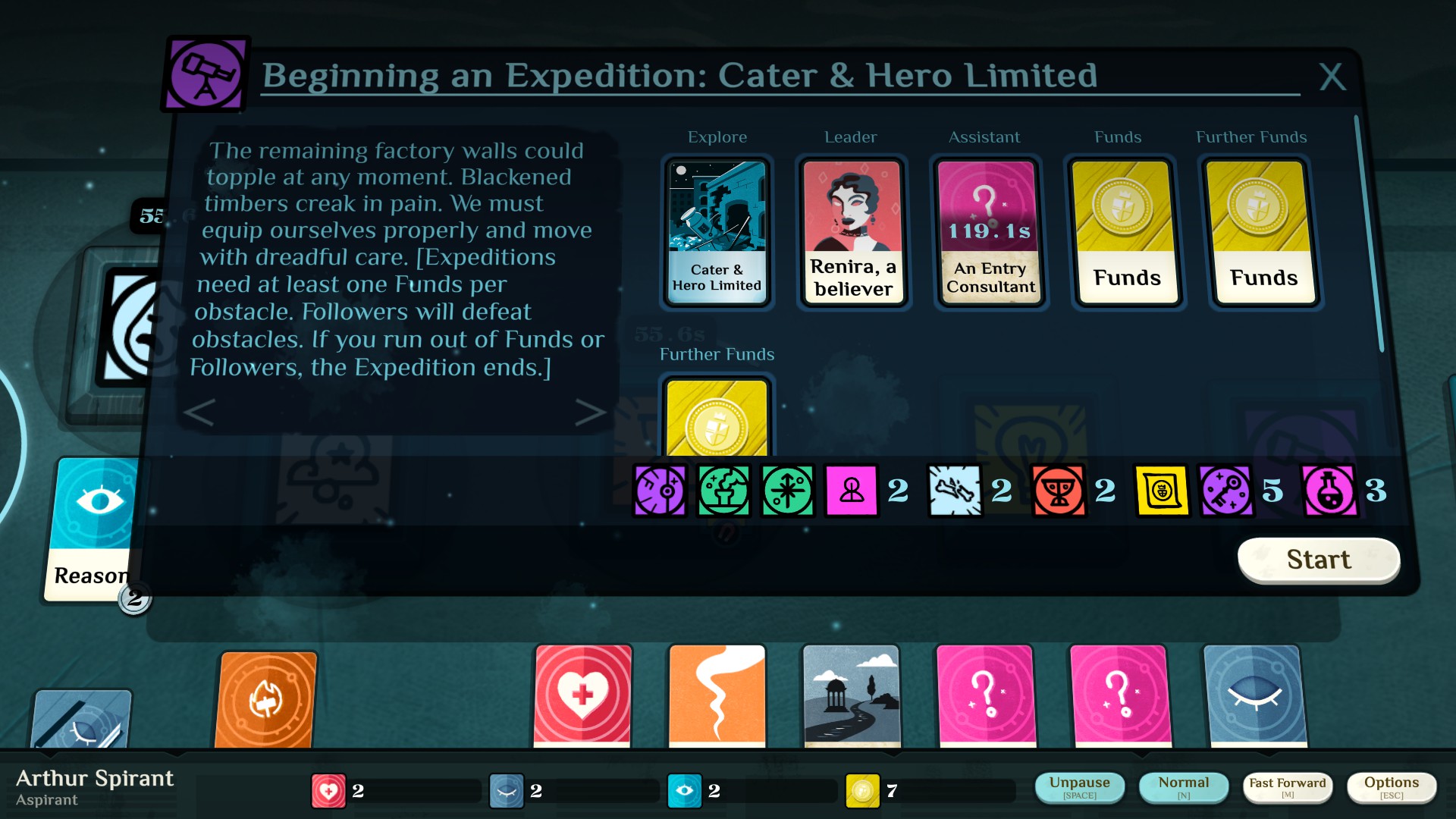Half the fun of Cultist Simulator is simply figuring out how it all works
Not knowing is half the battle.


Accompanying our team-selected Game of the Year awards for 2018, individual members of the PC Gamer team will each discuss one of their favorites from the last 12 months. We'll post a new personal pick alongside our awards until 2018 ends.
The first time I played Cultist Simulator my character died pretty quickly. The singleplayer narrative card game from developer Weather Factory doesn't have a proper tutorial so I had very little idea what was going on, what most of the cards did, or what I was meant to be doing with them. Unless you want to google a bunch of guides first (and there weren't many back when I played it), the only knowledge of how to play comes from a bit of flavor text on the cards, a little experimentation, and a lot of trial and error.
This probably doesn't sound like a ringing endorsement, and it's not really a format I'd recommend for most games—losing and having to start over from the beginning without knowing or understanding why is usually a frustration, not a selling point. But Cultist Simulator is the rare game (I'd throw Crusader Kings 2 into this category) where it's still immensely fun to play, and lose, without really knowing what the hell is happening or what went wrong. Plus, over the course of each game, I'd always get a little bit further, last a little longer, and learn a bit more.

Most importantly, in each game I played I'd get a glimpse of just how much more there was to learn. Maybe just before I perished, I'd meet a character I'd never seen before, or I'd come into possession of a mysterious new item, or discover a new location card. This meant each time I failed and died and watched my lovely collection of cards turn to ash, I'd feel eager to immediately dive back in, intrigued by the new possibilities I'd seen in the last game, ravenous to discover those new cards again and uncover their meaning and purpose. It's a dark, murky, mysterious game, and that mystery goes on and on, even dozens of hours later.
And Cultist Simulator is a surprisingly long game, too. As my desktop grew more and more cluttered with cards, and as I used them to found cults, to attract followers, to send them on expeditions and gather relics, as I grew in power and wealth and was drawn deeper into the twisted story, I'd always figure I was close to the end. Close to whatever approximated winning. And then another mystery would appear, another layer to the madness would appear to wrestle with.
What Cultist Simulator simulates best is the feeling of having an obsession, or even just having a deep interest or a hobby you love more than anything else. Strip away the mysterious cult business and it's a time management game, as you attempt to balance work, money, health, and recreation. And as in real life, you can feel your attention being dragged away from your day-to-day routine and into what you're really passionate about. You stay up too late, you don't make it to work on time, you get in trouble with the boss, and your health might even start to decline as you get more and more obsessed. (Though hopefully in real life you don't get so distracted that you wind up having to hurriedly poison a nosy detective and store his corpse in your closet.)

Even now there's still quite a bit about Cultist Simulator I don't completely understand, but for me that's all part of the fun. There are plenty of games that take hours to master, but it's rare to find one that can throw you an unexpected curve dozens of hours in. I'm not a Lovecraft fan, and I don't typically play card games (aside from a little app-based poker), but I fell heavily for Cultist Simulator. It became something of an obsession, you could say.
Since its release it's gotten not just DLC but some additional gameplay tweaks, including less reliance on RNG, which should alleviate some mid-game frustration when trying to acquire certain items. There's more coming in the future, too, though it's safe to safe I probably won't understand that, either.
Keep up to date with the most important stories and the best deals, as picked by the PC Gamer team.

Chris started playing PC games in the 1980s, started writing about them in the early 2000s, and (finally) started getting paid to write about them in the late 2000s. Following a few years as a regular freelancer, PC Gamer hired him in 2014, probably so he'd stop emailing them asking for more work. Chris has a love-hate relationship with survival games and an unhealthy fascination with the inner lives of NPCs. He's also a fan of offbeat simulation games, mods, and ignoring storylines in RPGs so he can make up his own.

